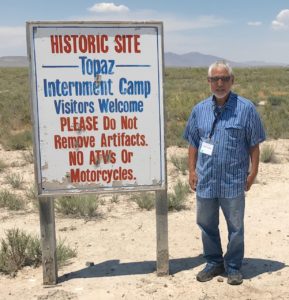Even Though There Are Legal Threats to DACA, There Is Reason to Be Hopeful
THE TORCH: CONTENTSBy NILC staff
August 4, 2017
Several legal threats to the Deferred Action for Childhood Arrivals (DACA) program have its beneficiaries and prospective applicants understandably worried, but it’s important to remember that there haven’t been any major changes to the program and that, because there’s broad bipartisan support for keeping it, there’s also reason to be hopeful.
The bad news first: There are some legal threats against DACA. One is a threat by ten state attorneys general and one governor, sent in a letter to U.S. Attorney General Jeff Sessions, to amend the U.S. v. Texas lawsuit that challenged the DAPA (Deferred Action for Parents of Americans) and expanded DACA (DACA+) programs to also legally challenge the original DACA program. (The Obama administration created DACA in 2012 and announced DAPA and DACA+ in 2014.) The letter says that this threat will be carried out if the federal government doesn’t agree by Sept. 5, 2017, to do away with the 2012 DACA program. Below are some potential scenarios related to this threat.
The federal government decides by September 5, 2017, to rescind the June 15, 2012, DACA memorandum
If the federal government decides to end the DACA program, it would likely be on the terms laid out in the letter to Sessions from the state attorneys general. In that case, after the program is ended, U.S. Citizenship and Immigration Services (USCIS) would issue no new grants or renewals of DACA, and existing grants of DACA and accompanying work permits would expire on their current expiration dates.
The federal government does not rescind the June 15, 2012, DACA memorandum
In their letter to Sessions, the ten state attorneys general said that if the federal government does not agree by Sept. 5, 2017, to rescind the June 15, 2012, memorandum that initiated the DACA program, they will seek to amend their complaint in U.S. v. Texas to add a legal challenge to DACA. It’s possible that they may also seek to have the DACA program preliminarily enjoined (halted) while their case makes its way through the courts.
Texas federal judge Andrew Hanen previously granted Texas’s requested preliminary injunction against the DAPA and DACA+ programs, so he may be willing to do so again with respect to the 2012 DACA program.
We don’t know how long it would take for the court to hear and rule on such a request. It also isn’t certain that Judge Hanen would issue an injunction against DACA as he did with DAPA and DACA+
The U.S. v. Texas court rules on MALDEF’s request that the case be dismissed
On July 28, 2017, the Mexican American Legal Defense and Educational Fund (MALDEF) asked Judge Hanen to dismiss the U.S. v. Texas case. MALDEF argues that, because former Secretary of Homeland Security John Kelly issued, on June 15 of this year, a memo that largely rescinds the 2014 memos that created the DAPA and DACA+ programs, there are no issues left to litigate in U.S. v. Texas. If the court were to dismiss the case, that would of course affect any attempt by the ten state attorneys general to carry out their threat against DACA.
Briefing on MALDEF’s request continues. There’s no way to know when the court will rule on MALDEF’s motion or whether the court will deny the motion and allow Texas and its partner states to add to U.S. v. Texas a legal challenge to the original DACA program.
* * *
Developments in another case—Arizona Dream Act Coalition (ADAC) v. Brewer—may pose another legal threat to DACA.
This case was filed just after the DACA program was announced, when the then governor of Arizona issued an order whose effect was to make DACA recipients ineligible for driver’s licenses. In January 2015, a federal district court in Arizona permanently blocked Arizona’s policy, and that decision was later upheld by the Ninth Circuit Court of Appeals. Thus, DACA recipients can get drivers licenses in Arizona.
Arizona has now appealed the case to the Supreme Court and is arguing that DACA is unconstitutional. On June 26, 2017, the Court issued an order calling for the views of the U.S. solicitor general as to whether the Court should hear the case. The Court didn’t set a deadline for the solicitor general’s brief, but on average it takes around four months for the solicitor general to file such a brief. Here are some possible scenarios.
The solicitor general recommends that the Supreme Court not take the case
Although DACA was created by the Obama administration, the current solicitor general may choose to continue with the federal government’s previous opinions and tell the Court there’s no need to disturb the Ninth District’s ruling.
However, the solicitor general could recommend, a few months from now, that the Court not take the case because the government has ended the DACA program voluntarily or because the solicitor general knows that the program will soon be terminated.
The solicitor general recommends that the Supreme Court take the case
The solicitor general may recommend that the Supreme Court take the case to resolve once and for all the legal issues about DACA’s constitutionality. Last year the Court was unable to reach a majority decision on whether the DAPA and DACA+ programs were constitutional, and it’s impossible to know now how it might rule if asked to decide about the original DACA program. Last year when it was considering the DAPA and DACA+ case, the Court had only eight justices, but since then Justice Neil Gorsuch has joined the Court. So it’s much more likely that there would be a majority decision in ADAC, if the court decides to hear it.
Even if the Court does decide to hear ADAC, it may reach a decision without ruling on DACA’s constitutionality, since it could base its decision on other legal principles.
While these legal threats to DACA raise concerns, there is also plenty of reason to be hopeful. For one thing, several bipartisan bills have recently been introduced to provide a permanent legislative solution for DACA recipients. In truth, they aren’t likely to pass and, if they did, they would probably come with unwanted changes to immigration enforcement policy. However, they do show that there’s broad bipartisan support for DACA recipients, which means that any decision to end DACA would be very politically unpopular.
Stay tuned for updates on DACA and DACA-related legislation. We’ll also be celebrating DACA’s five-year anniversary on Aug. 15 and will continue to highlight all the positive effects DACA has in people’s lives and communities.








